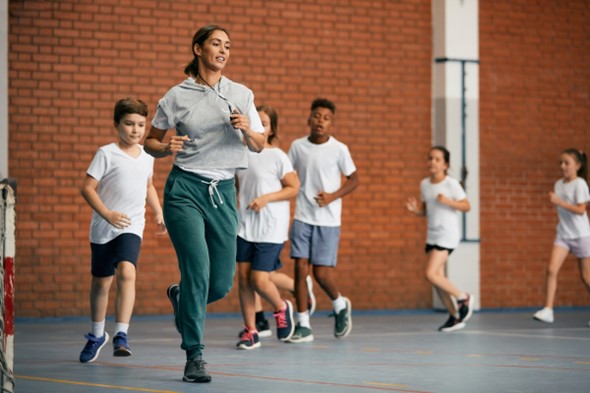In the realm of education, physical education (PE) and sports are often viewed through a narrow lens, focusing solely on their benefits to physical health. However, their value extends far beyond, playing a pivotal role in the comprehensive development of students. This includes not only enhancing physical well-being but also bolstering mental health, nurturing social skills, elevating academic performance, and instilling lifelong healthy habits. The Upland Unified School District explores the multifaceted benefits of physical education and sports underscore their importance in the academic journey of students, making a compelling case for their integration into the educational curriculum.
A Foundation for Physical Health
The significance of PE and sports in promoting physical health is undeniable. Regular engagement in physical activity is crucial for the development of strong muscles and bones, especially in the formative years of a child’s life. It aids in maintaining a healthy weight, thereby preventing obesity—a growing concern in today’s sedentary lifestyle. Furthermore, an active routine reduces the risk of numerous chronic conditions, including heart disease, diabetes, and hypertension, setting the stage for a healthier adulthood.
The Upland Unified School District emphasizes that physical activities, through sports or structured PE classes, also enhance motor skills and coordination in students. This is not just beneficial for their physical health but also contributes to their safety by reducing the risk of injuries in daily life. Moreover, the promotion of good health habits, such as regular exercise and teamwork, lays the groundwork for a lifestyle that prioritizes well-being.
Mental and Emotional Well-being
The positive impact of physical education and sports on mental health is profound and multifaceted. Engaging in regular physical activity is known to stimulate the release of endorphins, often referred to as “feel-good” hormones, which play an essential role in managing stress and anxiety. For students grappling with the pressures of academic responsibilities and social dynamics, this emotional uplift is invaluable.
Sports and physical activities also provide a structured outlet for energy and emotions, fostering a sense of calm and well-being. The focus required in sports disciplines enhances cognitive functions, including attention span and memory, which are crucial for academic success. The Upland Unified School District the achievement of physical milestones and improvement in skills fosters self-esteem and confidence, empowering students to tackle other areas of their lives with a positive mindset.
Social Skills and Personal Development
The social environment of team sports and group physical activities is a fertile ground for the development of essential life skills. Teamwork, communication, and cooperation are not just part of sports but are vital skills for personal and professional success. Participating in sports teaches students the value of working together towards a common goal, respecting individual roles and contributions, and the significance of collective effort over individual achievement.
Leadership skills are also honed on the field as students take on roles that require guiding others, making strategic decisions, and motivating teammates. The Upland Unified School District explains the competitive aspect of sports instills resilience and the ability to handle failure and success with grace, preparing students for the ups and downs of life.
Academic Performance and Cognitive Benefits
The link between physical activity and academic performance is backed by a growing body of research. Students who are active participants in sports and physical education tend to exhibit better concentration, enhanced memory retention, and superior problem-solving skills. These cognitive benefits are attributed to increased blood flow to the brain during exercise, which stimulates brain growth and neural connectivity.
Physical activity breaks can also rejuvenate students, making them more attentive and ready to learn. The Upland Unified School District explains that this contradicts the outdated notion that time spent in physical education could detract from academic learning. Instead, a balanced approach that includes physical activity is shown to contribute to better academic outcomes, including higher grades and standardized test scores.
Cultivating Lifelong Healthy Habits
One of the most enduring benefits of incorporating physical education and sports into the educational system is the instillation of lifelong healthy habits. Early exposure to structured physical activity and the enjoyment of sports can foster a positive attitude towards fitness throughout life. This is particularly important in today’s digital age, where sedentary lifestyles are becoming the norm.
By emphasizing the fun and collaborative aspects of sports, schools can encourage students to remain active, even outside the school environment. This not only combats the prevalence of lifestyle-related diseases but also contributes to a society that values and prioritizes health and well-being.
The comprehensive benefits of physical education and sports extend far beyond the gymnasium or the playing field. They are instrumental in developing physically healthy, mentally resilient, socially skilled, and academically successful individuals. The integration of physical education and sports into the educational curriculum is not just a matter of policy but a commitment to the holistic development of students. The Upland Unified School District emphasizes that as awareness of these benefits continues to grow, it is imperative for educational institutions to prioritize and promote physical activity and sports, ensuring that students are equipped with the knowledge, skills, and habits necessary for a healthy, productive, and fulfilling life.









